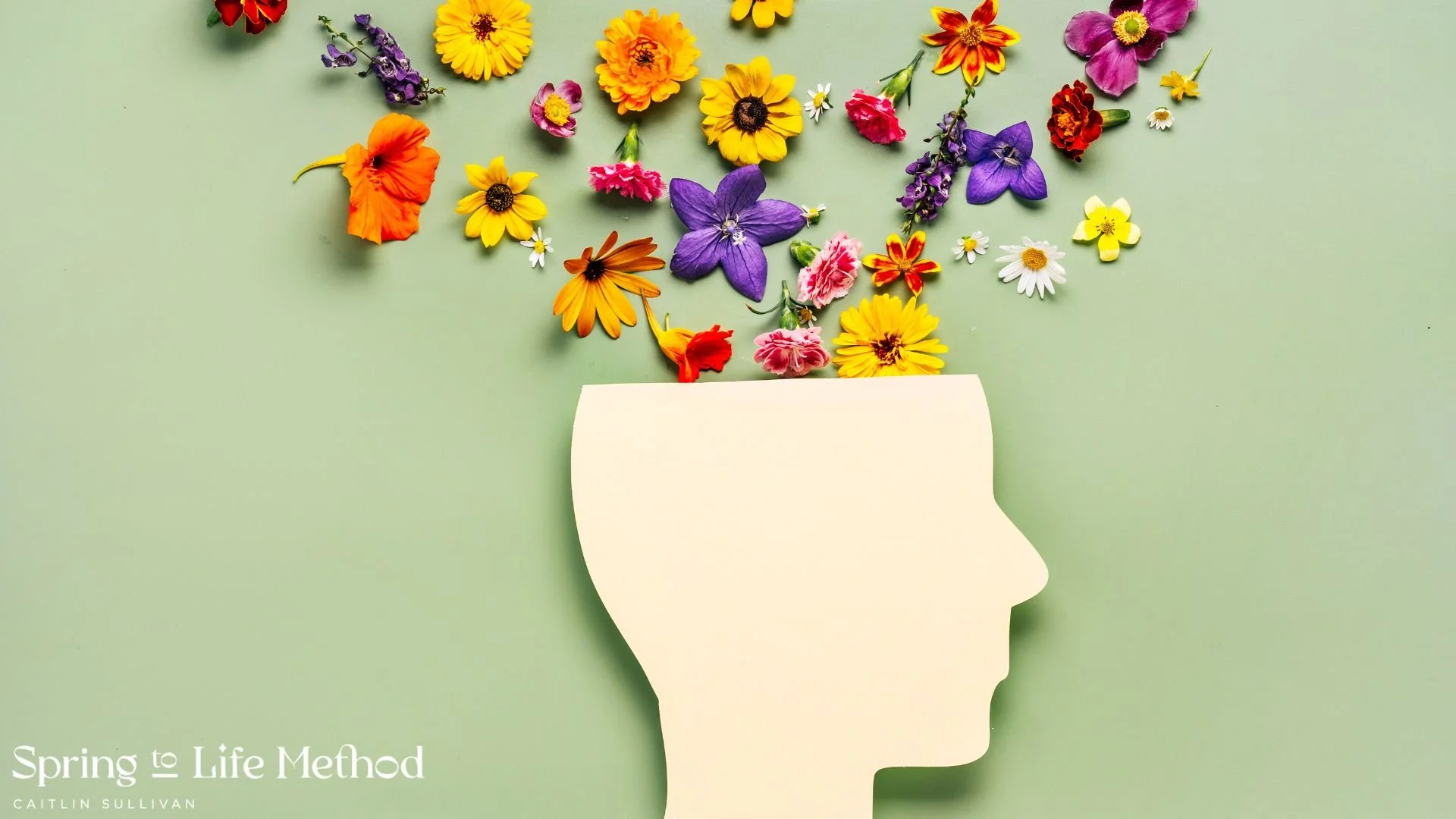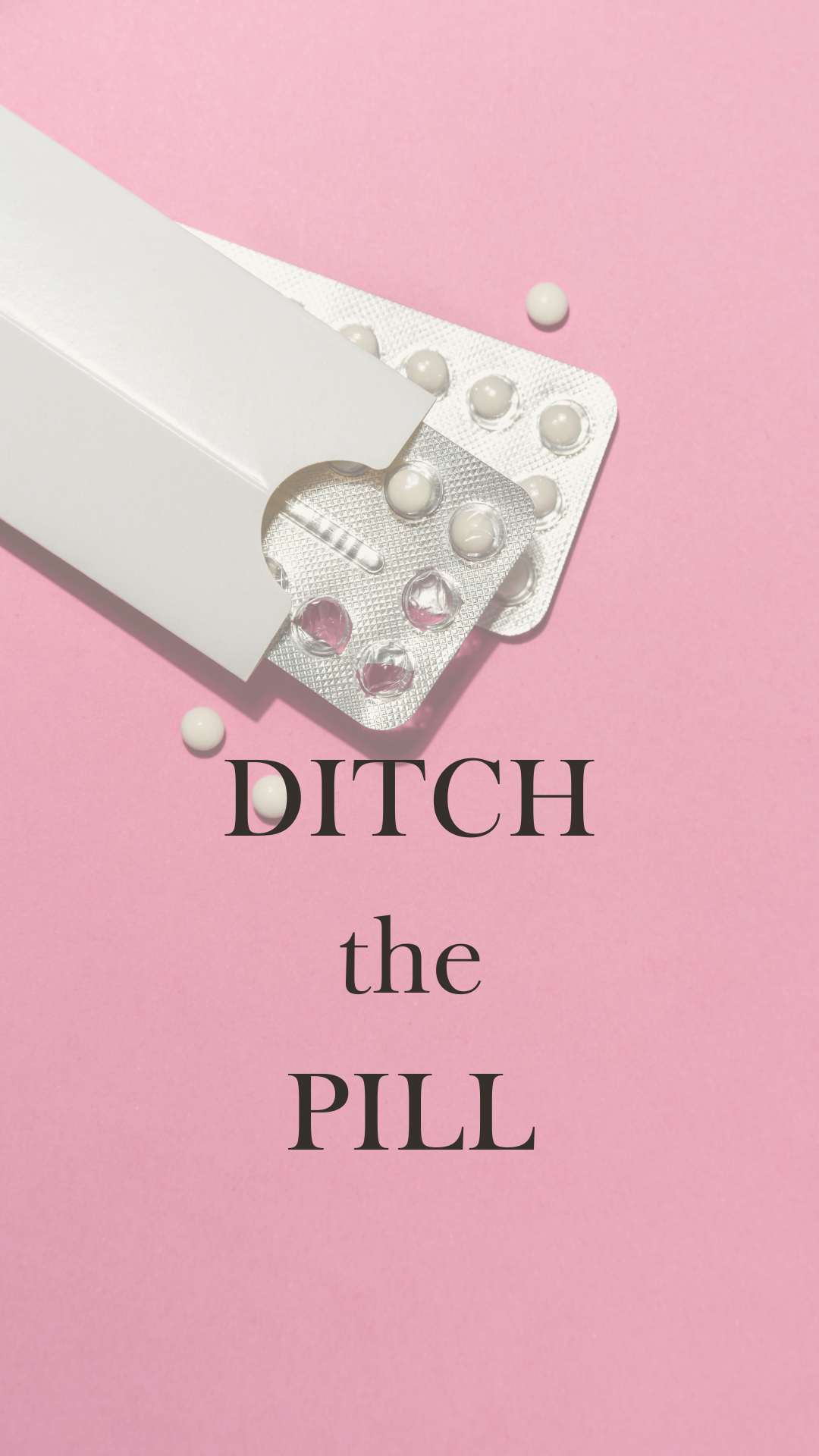Your Mental Health on the Pill: The Hidden Connection
By my mid-twenties, I had accepted that I was “just an anxious person.”
My anxiety was through the roof on any given day. I planned my life around it, worried about things I hadn’t even done yet, and replayed what I had already said or done on a loop. It felt like my personality was wired for worry.
Life became a constant rotation of:
Laying awake at night, obsessing over my to-do list
Jolting awake in the morning, terrified I had missed a client session
Dreading simple work tasks
Sweating over social interactions
Living in a restless, jittery body
It was a vicious cycle, and I honestly thought most people operated the same way. I couldn’t even imagine what life would feel like without the weight of constant anxiety.
But then something surprising happened.
When Gut Health Shifted, So Did My Anxiety
I first began working on my gut health to tackle frequent yeast infections, acne, bloating, and inflammation. To my shock, my mental health began improving too.
I felt calmer. More grounded in my body. Less frazzled by everyday tasks.
It was a complete revelation—after years of thinking my anxiety was permanent, I suddenly realized there was more going on beneath the surface.
And it’s no coincidence. About 90% of your serotonin—the “happy hormone” that regulates mood—is produced in the gut. If your microbiome is out of balance, your mental health will reflect it.
Clearing infections, reducing inflammation, and healing my gut didn’t just improve my skin and digestion. It gave me glimpses of peace I hadn’t felt in years.
But my acne still lingered. And my anxiety, though better, was still humming beneath the surface.
IUDs still count as hormonal contraceptives unless it is the copper IUD
The Final Piece: Removing My Hormonal IUD
For over a year, I had been debating removing my Skyla IUD. My esthetician (shoutout to Lauren of Soul Skin Studio!) helped me make huge progress on my skin with a holistic approach, but we both suspected my suppressed hormones were the missing puzzle piece.
After five long years, I finally decided to have my IUD removed.
The change was almost instantaneous.
I felt lighter, happier, and more like myself than I had in years. Suddenly, I was excited about life again. I experienced real pleasure. I even began to embrace the natural rhythms of my menstrual cycle instead of feeling like I was fighting against my body.
And then I got angry.
Because if I felt this good after coming off hormonal birth control, what had it been doing to me all those years?
Do Hormonal Contraceptives Affect Mental Health?
I didn’t have to search far for answers.
In The Fifth Vital Sign by Lisa Hendrickson-Jack, she lays it out clearly:
There is a definite link in the research between hormonal contraceptives and mood disorders
Much of the research is framed to help doctors justify prescribing hormonal birth control despite those risks
In other words: yes, hormonal contraceptives—including the pill, IUDs, and implants—can and do contribute to anxiety, depression, and mood instability.
And yet, women are still being prescribed these drugs daily, often without being warned of the potential side effects on their mental health.
If you want to let out a rage scream right now, go ahead.
Because it’s not in your head.
You’re not broken.
And you’re not “just an anxious person.”
The truth is, hormonal contraceptives can deplete nutrients, alter your brain chemistry, and leave you feeling trapped in mood disorders that aren’t actually you.
Hormonal contraceptives can and do contribute to anxiety, depression, and mood instability
Why Does This Happen?
The short answer: nutrient depletion.
Hormonal contraceptives interfere with your body’s ability to absorb and utilize certain vitamins and minerals—especially vitamin B6.
Here’s why that matters:
Your body needs B6 to metabolize tryptophan, which is required to produce serotonin
Without adequate serotonin, your risk of anxiety and depression skyrockets.
So when you’re on the pill (or another hormonal contraceptive), your mental health struggles often aren’t random. They’re biochemical.
What You Can Do
The good news is, you have options. Here are practical, science-backed steps you can take to reclaim your mental health:
1. Get Your Bloodwork Done
Ask your primary care provider for a comprehensive panel that checks nutrient absorption—especially B vitamins. Some women require a methylated formulation (activated B vitamins) to properly absorb them.
2. Increase Vitamin B6 Through Food
Load your plate with nutrient-dense, B6-rich foods such as:
Grass-fed beef liver
Pasture-raised poultry
Wild-caught tuna and salmon
Chickpeas
Bananas, papayas, oranges, cantaloupe
Dark leafy greens
3. Consider a Targeted Supplement
If you struggle to get enough from food alone, supplementation can help. I like Wellbel, which combines folate, B12, and hormone-balancing herbs. Bonus: it supports hair growth, too. (Use code caitlin10 for 10% off.)
4. Heal Your Gut
Since the majority of serotonin is produced in your gut, restoring your microbiome is one of the most powerful ways to support mental health naturally. Focus on:
A diverse, fiber-rich diet
High-quality probiotics
Reducing inflammatory foods
Supporting your liver (which works closely with your gut)
I cover gut-healing strategies in detail inside my ebook Ditch the Pill: A Roadmap to Reclaiming Your Hormonal Health.
5. Consider Transitioning Off Hormonal Contraceptives
This may sound daunting, but if your birth control is at the root of your anxiety or depression, addressing the source can be life-changing.
Non-hormonal options include:
The copper IUD
Barrier methods (condoms, diaphragm, etc.)
Fertility Awareness Method (FAM)—learning to track your cycle and ovulation
Cycle syncing, which I also teach in Ditch the Pill, is a beautiful way to reconnect with your body’s natural rhythms. It’s body literacy and empowerment at its finest.
Final Thoughts
If you’ve been struggling with anxiety, depression, or mood swings on the pill, please hear this: it’s not you.
It could be the hormonal contraceptives you’ve been prescribed. And you deserve to know the truth about how they can affect your mental health.
By nourishing your body with the right nutrients, healing your gut, and considering alternatives to hormonal birth control, you can begin to feel like yourself again.
I know, because I’ve lived it.
You don’t have to settle for “just being anxious.” You can reclaim your mental health—and your life.
Quitting hormonal birth control can feel like stepping into the unknown. Will you face acne, irregular cycles, or mood swings? How do you advocate for yourself with your doctor? With Ditch the Pill, you’ll get a clear, step-by-step roadmap to navigate the transition—without the stress.
This 70+ page eBook, paired with a powerful workbook, gives you the tools to:
Understand Your Hormones: Learn exactly what happens in your body when you stop the pill and how to prepare for the shift.
Know Your Bloodwork: Discover precisely which blood panels to request to assess your hormonal health and track your recovery.
Talk to Your Doctor: Get expert tips on how to confidently discuss getting off hormonal birth control with your healthcare provider.
Ease Symptoms: Tackle common challenges like acne, irregular periods, and mood changes with proven strategies.
Nourish Your Body: Explore hormone-friendly nutrition and lifestyle tips to detox and rebalance.
Track Your Progress: Use the included symptom tracker, meal planner, and cycle tracking template to stay in control.
Why Now?
Your hormonal health can’t wait. For just $9.00, you get everything you need to transition off the pill with ease. Grab it now and start your journey to hormonal freedom!
Get Your Copy Now for $9.00
Instant download. Secure checkout. 100% satisfaction guaranteed.
Still Hesitating?
We get it—stopping the pill can feel daunting. That’s why Ditch the Pill is packed with expert advice, including how to ask for the right blood panels and confidently talk to your doctor, to make the process smooth and empowering. You’ve got this!
Start Your Journey Today



